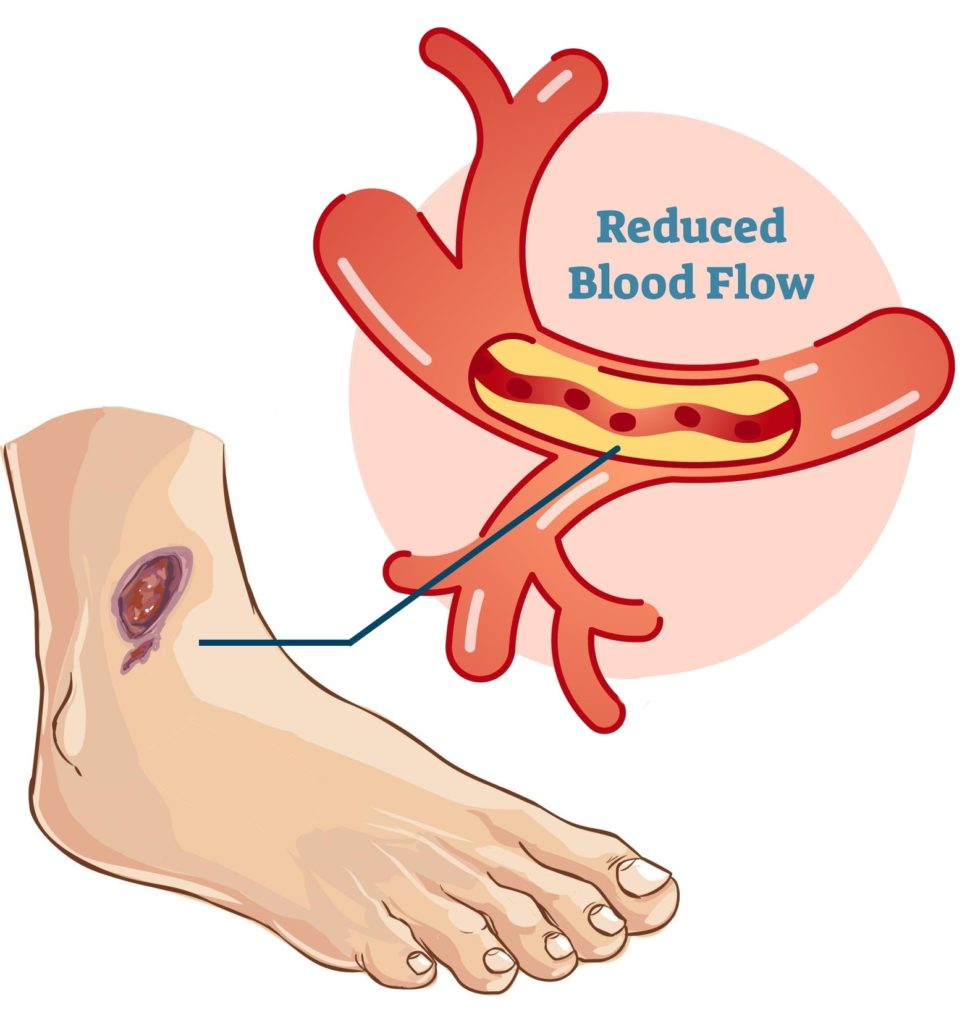Normal to expect that cuts, blisters, or sores will heal themselves. In most cases, with a little maintenance and cleaning our bodies do an incredible job of healing themselves. But if a wound won’t heal after four to six weeks, or if it starts looking worse redder, swollen, leaking fluid, or giving off a bad smell that’s a clear sign something deeper is going on. Sometimes, a wound that is small may turn into an unhealing leg or foot ulcer and, if not treated they can cause serious problems, or even amputation in extreme cases.

It’s time to seek help if you haven’t been successful in healing a wound.
Why some wounds refuse to heal?
Understanding the common reasons for a wound not healing can aid you and your physician determine the best treatment for it.
If you suffer from diabetes the risk of developing foot and leg ulcers is very high. A high blood sugar level can harm nerves, which means you won’t notice any injury. It also hinders the flow of blood, which makes it hard for minor cuts to heal.
A lack of circulation may be a reason. This is typically associated with venous or artery ulcers. Your blood can’t heal your skin if your veins or arteries aren’t functioning properly.
If you are unable to move about, there is a chance that you’ll develop pressure ulcers.
Apart from age, other factors, such as certain medicines (such as blood thinners) or autoimmunity issues, or inadequate nutrition, may delay healing. Sometimes it’s a combination these factors that make a wound stick around.
How long does healing last and what happens if it isn’t?
It is possible to ask what is the “normal” healing process is. It’s dependent on the nature of the injury as well as your general health. A tiny cut or blister can heal in only a couple weeks. However, if you’re dealing an injury to your foot that’s more serious or a leg wounds won’t heal, it might take 12 weeks to heal if things are going well.
One thing you must remember is this: if you’re not experiencing noticeable improvement after 4 to 6 weeks, don’t delay. Now is the time to seek treatment for your wound from professional. The longer an open wound remains in the open, the more dangerous it could become.
The right help is what You Deserve
If your sore isn’t healing the same way, it’s not “bad luck” or a reason to not pay attention to your body is trying to tell you it requires assistance. The good news? Treatments and experts can make a difference. Our clinic is specialized in treating foot and leg wounds that don’t heal. We partner with other medical professionals and devise an action plan that gives your body the highest chance of healing and prevent an amputation.
There are numerous options available, whether it is advanced wound dressings or the ability to restore blood flow. There are even specific therapies such as hyperbaric oxygen. We’ll assist you in every step, since we are convinced that no person should ever be forced to treat with a wound that doesn’t heal.
Final Thoughts
The effects of a laceration that isn’t healing aren’t only physical. They can affect your whole life. There is hope. If you’re sick of dealing with a leg ailment that isn’t healing, a wound that isn’t healing or a painful foot ulcer, do not hesitate to reach out for help. The faster you seek for help, the quicker the wound you’ve been struggling with will heal and you’ll be able to resume the life you’re entitled to.
